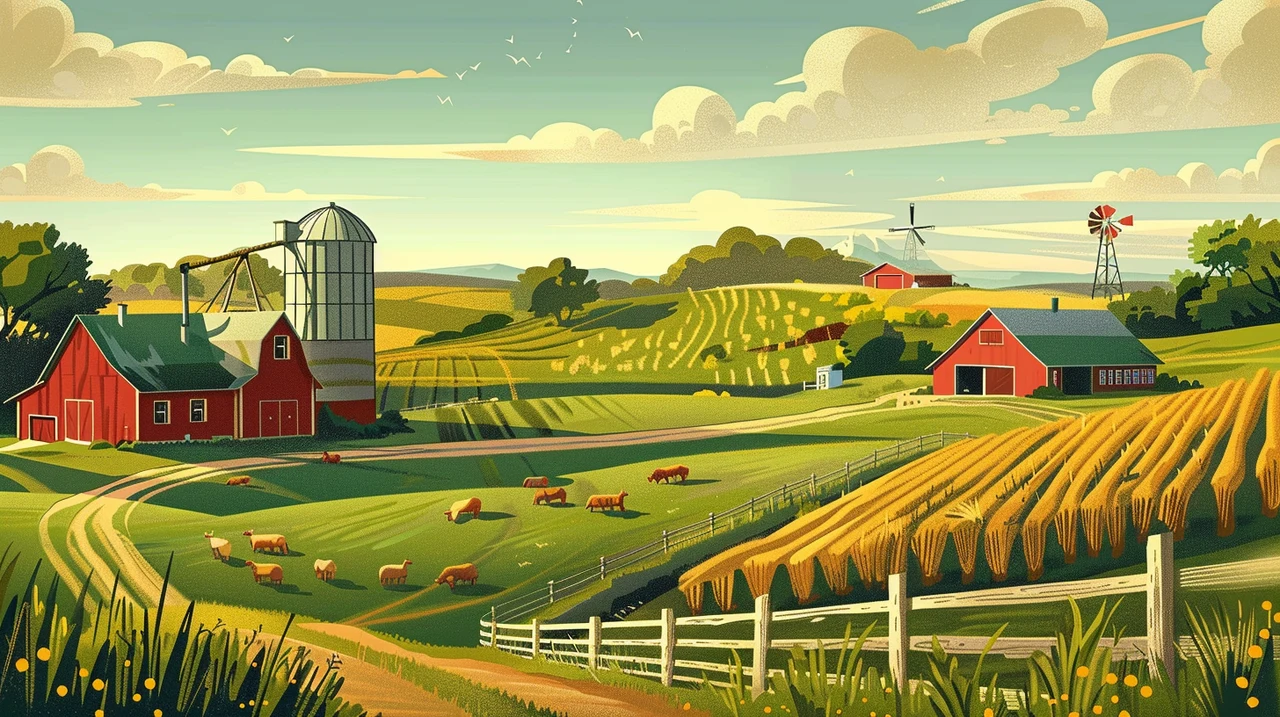Have you ever wondered how a company known for its tractors could become a leader in robotics and AI? John Deere is doing just that, revolutionizing the farming industry with cutting-edge technology. From the self-scouring steel plow to precision farming tools, John Deere has always been a pioneer. But as they integrate more advanced technologies, farmers face new challenges, including increased costs and a dependency on tech. How will this shift impact the traditional farming lifestyle and economic landscape?
John Deere, a name synonymous with agriculture, has undergone a remarkable transformation in recent years. From its humble beginnings as a manufacturer of traditional tractors, the company has emerged as a trailblazer in the field of agricultural technology. By embracing innovative advancements such as robotics, artificial intelligence (AI), computer vision, and data analytics, John Deere is transforming the way we approach farming, aiming to boost efficiency and productivity in this vital sector.
The company’s journey of innovation spans centuries, with each milestone building upon the last. In the 19th century, John Deere’s self-scouring steel plow marked a turning point in agriculture, making it easier for farmers to cultivate their land. The introduction of gas-powered tractors in the early 20th century further mechanized farming, setting the stage for the technological leaps we witness today.
Precision Farming: The Key to Optimizing Agricultural Practices
One of the most significant developments in modern agriculture is the rise of precision farming, a concept that John Deere has wholeheartedly embraced. By leveraging GPS technology, farmers can now map their fields with unprecedented accuracy, allowing them to optimize planting, fertilizing, and harvesting processes. John Deere’s Starfire system takes this a step further, providing reliable autonomous guidance for machinery, ensuring consistent and precise operation across vast tracts of land.
The benefits of precision farming are numerous:
- Increased efficiency and productivity
- Reduced waste and environmental impact
- Improved crop yields and quality
- Optimized resource management
Pushing the Boundaries of Agricultural Technology
In recent years, John Deere has made strategic acquisitions of tech companies specializing in AI, machine learning, and automation. These partnerships have given rise to groundbreaking technologies like See & Spray, which uses computer vision to identify and precisely target weeds, minimizing herbicide use and promoting sustainable farming practices.
Other notable advancements include:
- Autonomous tractors and combines
- Sensor-based soil analysis
- Predictive maintenance for agricultural machinery
- Data-driven decision support systems
These technologies not only streamline farming operations but also contribute to the overall goal of feeding a growing global population while minimizing the environmental footprint of agriculture.
How technology is transforming Farming
Here are a selection of other articles from our extensive library of content you may find of interest on the subject of how technology is changing our world
Navigating the Challenges of Technological Advancement
While the benefits of advanced agricultural technologies are undeniable, their adoption is not without challenges. The increased costs associated with these innovative tools and the subscription fees for related services can place a significant financial burden on farmers, particularly small family-owned operations. Additionally, the reliance on authorized technicians for repairs has sparked debates about the right to repair, as farmers seek greater autonomy in maintaining their equipment.
The economic and social implications of these technological shifts cannot be overlooked. As larger, technologically advanced farms gain a competitive edge, smaller operations struggle to keep pace. This trend contributes to the consolidation of agricultural land and the decline of rural communities, raising concerns about the long-term sustainability and resilience of our food systems.
Charting a Course for the Future of Farming
As we look to the future, it is clear that the trajectory of farming is moving towards fully autonomous production systems. While these advancements promise unparalleled efficiency and productivity, they also present new challenges for farmers who must adapt to an increasingly tech-driven landscape.
To ensure a smooth transition, it is crucial to:
- Provide accessible training and support for farmers
- Foster collaboration between technology providers and agricultural communities
- Develop policies that support the adoption of sustainable farming practices
- Address the socio-economic implications of technological change in agriculture
By proactively addressing these challenges, we can harness the power of technology to create a more sustainable, efficient, and equitable future for farming. John Deere’s transformation from a traditional tractor company to a pioneer in agricultural technology serves as a powerful example of the transformative potential of innovation. As we navigate this new era of farming, it is essential to strike a balance between embracing the benefits of technological advancement and ensuring that the interests of farmers and rural communities are protected. Only then can we truly realize the promise of a brighter, more sustainable future for agriculture.
Video Credit: Source
Filed Under: Technology News
Latest TechMehow Deals
Disclosure: Some of our articles include affiliate links. If you buy something through one of these links, TechMehow may earn an affiliate commission. Learn about our Disclosure Policy.
